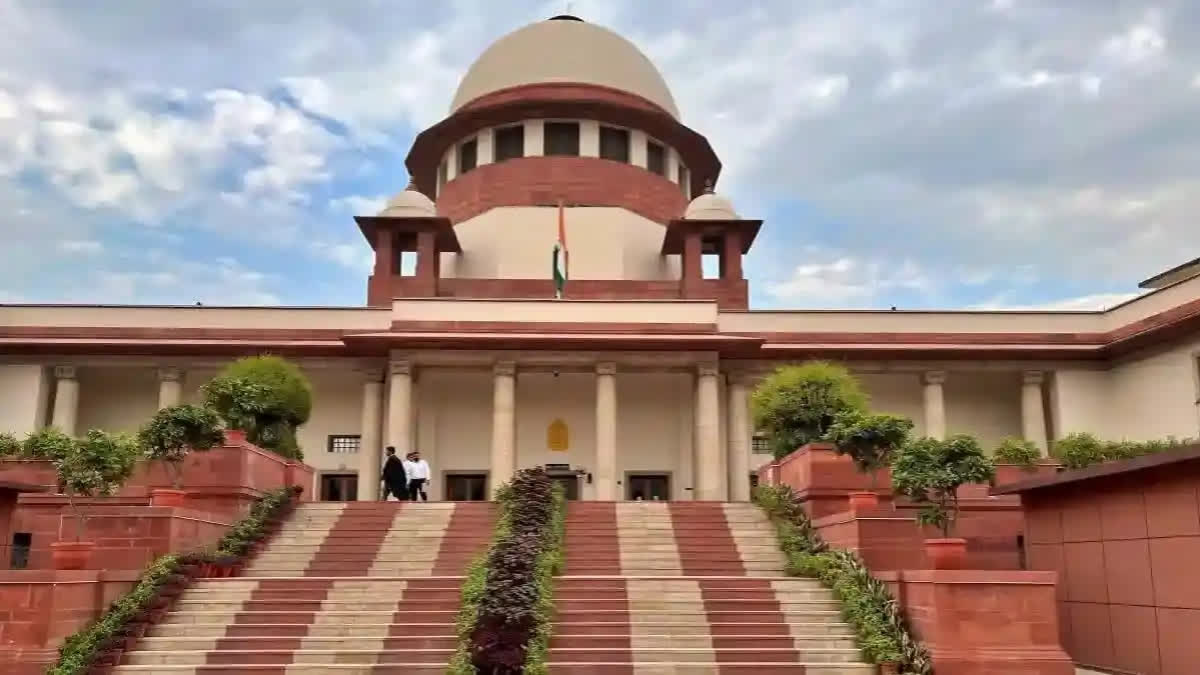New Delhi: The Supreme Court on Monday said the role played by elected members of the state legislative assemblies in electing members of the Rajya Sabha under Article 80 is significant and requires utmost protection to ensure that the vote is exercised freely and without fear of legal persecution.
A seven-judge bench led by Chief Justice of India D Y Chandrachud said: “The free and fearless exercise of franchise by elected members of the legislative assembly while electing members of the Rajya Sabha is undoubtedly necessary for the dignity and efficient functioning of the state legislative assembly. Any other interpretation belies the text of Article 194(2) and the purpose of parliamentary privilege”.
The bench said the protection under Articles 105 and 194 has been colloquially called a “parliamentary privilege” and not “legislative privilege” for a reason. “It cannot be restricted to only law-making on the floor of the House but extends to other powers and responsibilities of elected members, which take place in the Legislature or Parliament, even when the House is not sitting”, it said.
“This being a combination of seven judges of this court, it is clarified that voting for elections to the Rajya Sabha falls within the ambit of Article 194(2)”, said the bench.
Article 105(2) of the Constitution deals with the powers, privileges, and immunities of the members of Parliament and parliamentary committees and the equivalent provision in Article 194(2) of the Constitution which confers a similar immunity to the members of the state legislatures. “Parliamentary privilege, codified in Articles 105 and 194 of the Constitution, is integral to deliberative democracy in facilitating the functioning of a parliamentary form of governance”, said the apex court.
The factual situation in PV Narasimha Rao (1998) pertained to a no-confidence motion, while in the present case, the appellant, Sita Soren, voted to fill vacant seats in the Council of States or the Rajya Sabha.
In the counter affidavit filed by the respondent, it was submitted that since polling for the Rajya Sabha Election was held outside the house in the lobby, it cannot be considered as a proceeding of the House like a no-confidence motion. However, during oral arguments and in his written submissions, the Attorney General premised the argument that polling to the Rajya Sabha is not protected by Article 194(2) on the ground that such an election does not form part of the legislative proceedings of the House regardless of the geographical location of the election.
“Such an argument, although attractive at first blush, appears to be misconceived. In essence, the question is whether votes cast by elected members of the state legislative assembly in an election to the Rajya Sabha are protected by Article 194(2) of the Constitution”, said the bench.
The seven-judge constitution bench said the power to ‘vote’ for the elected members of the Rajya Sabha is solely entrusted to the elected members of the legislative assemblies of the states. It constitutes an integral part of their powers and responsibilities as members of the legislative assemblies of each of the states, it added.
The apex court said the elections to the Rajya Sabha conducted under Article 80, may also take place when the House is not in session as seats may fall vacant when the legislative assembly of the state is not in session. “However, the elections remain a part of the functioning of the Legislature and take place within the precincts of the Legislative Assembly. Similarly, the elections for the President of India under Article and for the Vice President under Article may also take place when Parliament or the state legislative assemblies are not in session. However, they are an integral part of the powers and responsibilities of elected members of the Parliament and state legislative assemblies.”, said the apex court.
The apex court said the vote for such elections is given in the legislature or Parliament, which is sufficient to invoke the protection of the first limb of Articles 105(2) and 194(2). “Such processes are significant to the functioning of the legislature and in the broader structure of parliamentary democracy. There appears to be no restriction either in the text of Article 105(2) and Article 194(2), which pushes such elections outside of the protection provided by the provisions. Further, the purpose of parliamentary privilege to provide legislators with the platform to 'speak' and 'vote' without fear is equally applicable to elections to the Rajya Sabha and elections for the President and Vice President as well”, said the bench.
The apex court said there is no dispute with the proposition that elections to the Rajya Sabha are not part of the law-making functions and do not take place during a sitting of the House. “However, the text of Article 194 consciously uses the term ‘Legislature’ instead of ‘House’ to include parliamentary processes which do not necessarily take place on the floor of the House or involve ‘lawmaking’ in its pedantic sense”, said the bench.
The 1998 case was doubted in an appeal by Jharkhand Mukti Morcha leader Sita Soren who was accused of accepting a bribe for a 2012 Rajya Sabha vote.


